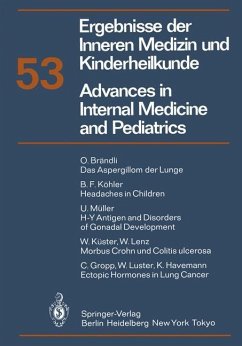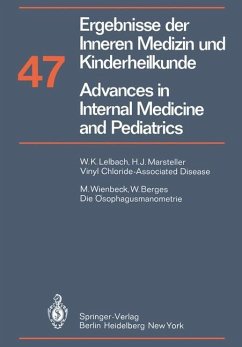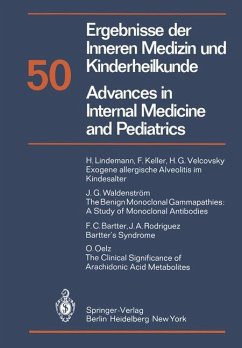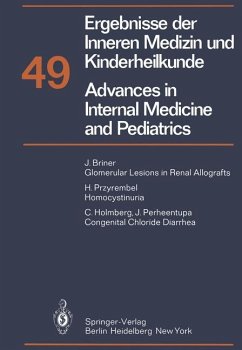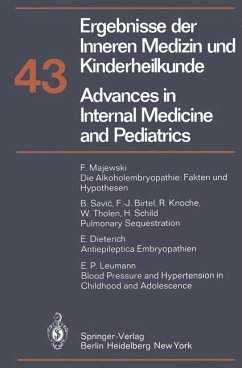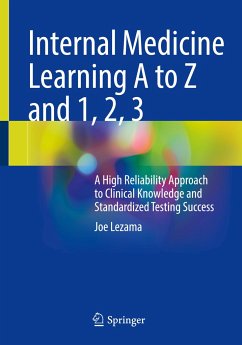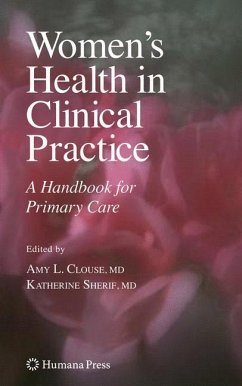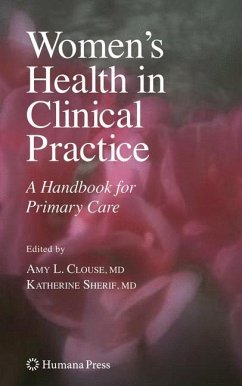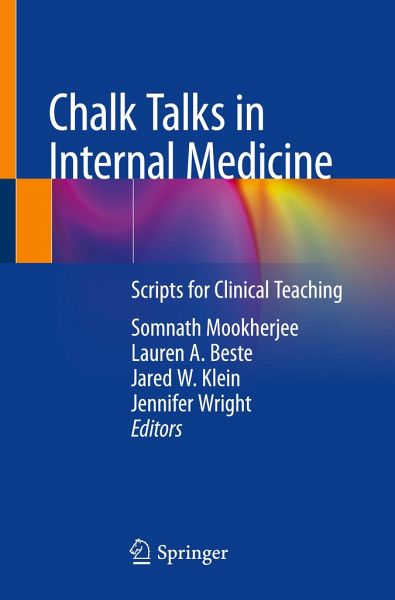
Chalk Talks in Internal Medicine
Scripts for Clinical Teaching
Herausgegeben: Mookherjee, Somnath; Beste, Lauren A.; Klein, Jared W.; Wright, Jennifer

PAYBACK Punkte
49 °P sammeln!
This book provides teaching scripts for medical educators in internal medicine and coaches them in creating their own teaching scripts. Every year, thousands of attending internists are asked to train the next generation of physicians to master a growing body of knowledge. Formal teaching time has become increasingly limited due to rising clinical workload, medical documentation requirements, duty hour restrictions, and other time pressures. In addition, today's physicians-in-training expect teaching sessions that deliver focused, evidence-based content that is integrated into clinical workflo...
This book provides teaching scripts for medical educators in internal medicine and coaches them in creating their own teaching scripts. Every year, thousands of attending internists are asked to train the next generation of physicians to master a growing body of knowledge. Formal teaching time has become increasingly limited due to rising clinical workload, medical documentation requirements, duty hour restrictions, and other time pressures. In addition, today's physicians-in-training expect teaching sessions that deliver focused, evidence-based content that is integrated into clinical workflow. In keeping with both time pressures and trainee expectations, academic internists must be prepared to effectively and efficiently teach important diagnostic and management concepts.
A teaching script is a methodical and structured plan that aids in effective teaching. The teaching scripts in this book anticipate learners' misconceptions, highlight a limited number of teaching points, provide evidence to support the teaching points, use strategies to engage the learners, and provide a cognitive scaffold for teaching the topic that the teacher can refine over time. All divisions of internal medicine (e.g. cardiology, rheumatology, and gastroenterology) are covered and a section on undifferentiated symptom-based presentations (e.g. fatigue, fever, and unintentional weight loss) is included. This book provides well-constructed teaching scripts for commonly encountered clinical scenarios, is authored by experienced academic internists and allows the reader to either implement them directly or modify them for their own use. Each teaching script is designed to be taught in 10-15 minutes, but can be easily adjusted by the reader for longer or shorter talks.
Teaching Scripts in Internal Medicine is an ideal tool for internal medicine attending physicians and trainees, as well as physician's assistants, nurse practitioners, and all others who teach and learn internal medicine.
A teaching script is a methodical and structured plan that aids in effective teaching. The teaching scripts in this book anticipate learners' misconceptions, highlight a limited number of teaching points, provide evidence to support the teaching points, use strategies to engage the learners, and provide a cognitive scaffold for teaching the topic that the teacher can refine over time. All divisions of internal medicine (e.g. cardiology, rheumatology, and gastroenterology) are covered and a section on undifferentiated symptom-based presentations (e.g. fatigue, fever, and unintentional weight loss) is included. This book provides well-constructed teaching scripts for commonly encountered clinical scenarios, is authored by experienced academic internists and allows the reader to either implement them directly or modify them for their own use. Each teaching script is designed to be taught in 10-15 minutes, but can be easily adjusted by the reader for longer or shorter talks.
Teaching Scripts in Internal Medicine is an ideal tool for internal medicine attending physicians and trainees, as well as physician's assistants, nurse practitioners, and all others who teach and learn internal medicine.



